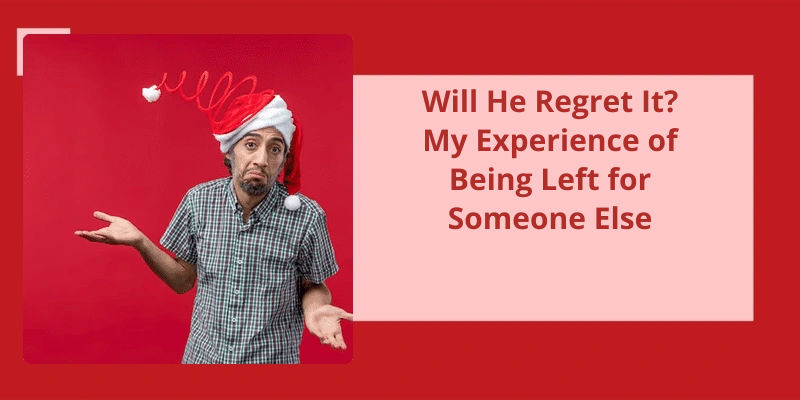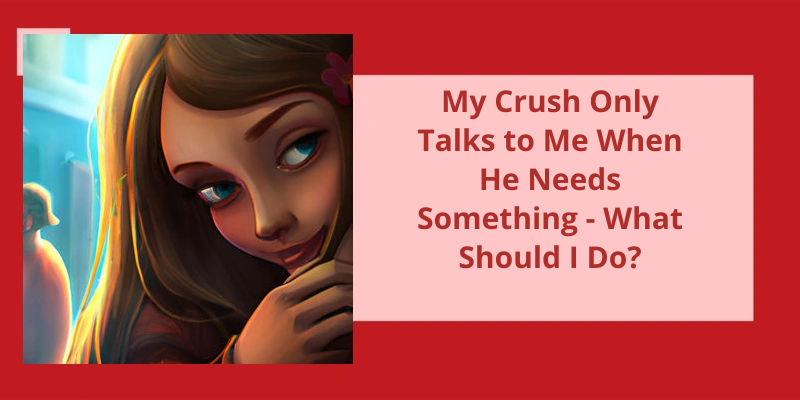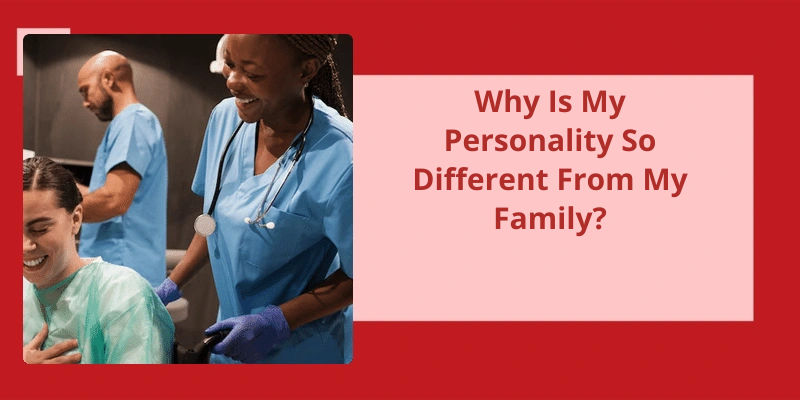It can be challenging to navigate friendships when our feelings towards someone don't align with what we think they should be. Maybe we've known them for a long time, or perhaps we met through mutual friends, but regardless of how the relationship began, we find ourselves struggling to connect with them. It can be challenging to reconcile our desire for peace and harmony with the discomfort that comes with being around someone we don't like. Still, it's essential to remember that friendships are, at their core, voluntary relationships. If we find ourselves consistently unhappy or uncomfortable around someone, we’ve the power to disengage and create boundaries that prioritize our emotional well-being. However, before we make any decisions about ending or adjusting the friendship, it's worth examining what's driving our negative feelings and considering if there are any changes we can make that might shift the dynamic between us. Ultimately, navigating a complicated friendship requires honesty, self-awareness, and a willingness to communicate openly and kindly with the people in our lives.
Can You Be Friends With Someone You Do Not Like?
However, being friends with someone you don’t like can be a delicate balancing act. It’s important to set boundaries to protect yourself and at the same time, be respectful of the other persons feelings. You may have to ask yourself why you’re friends with this person in the first place. Is it out of convenience? or do you truly value their company and friendship? If it’s the latter, then it’s worth figuring out why you don’t like certain aspects of them.
Sometimes, you may need to distance yourself for a while to gain clarity on the friendship. This doesn’t mean you’ve to cut them out completely, but it gives you time to reflect and assess your feelings. At the same time, being honest with your friend about why you need some space will help to avoid any misunderstandings.
Another approach could be to focus on the positive aspects of your friendship. Everyone has their flaws and imperfections, but there are also many good qualities that you may admire and enjoy. If you can appreciate these qualities, it may help to overlook the things you don’t like.
Ultimately, it’s important to remember that friendships are built on mutual respect and support. If you find that your friend consistently behaves in a way that goes against your values or is harmful to you, then it may be time to consider whether this person is truly a friend. Sometimes, it’s best to let go of toxic relationships for your own well-being.
How to Identify Toxic Friendships and When It’s Time to Let Go
- Constantly ignored or belittled by your friend
- Feeling drained after spending time with your friend
- Being guilt-tripped or manipulated by your friend
- Your friend is only present when they need something
- Your friend is always the victim and never takes responsibility for their actions
- Your friend constantly puts you down or talks behind your back
- Your friend is unsupportive of your goals and aspirations
- Your friend brings out the worst in you
- You dread spending time with your friend or making plans with them
- Your gut feeling is telling you that the friendship isn’t healthy
Maintaining healthy relationships with friends can be challenging, especially when you’ve to deal with their friends whom you don’t particularly like. It’s important to approach this situation with a level head and a positive attitude if you want to maintain strong and healthy relationships with those around you. Here are a few tips on how to cope with a friend who’s also friends with someone that you hate.
How Do You Deal With a Friend of a Friend That You Don’t Like?
Dealing with a friend of a friend that you dislike can be a challenging situation to navigate. It’s natural to feel uncomfortable around certain people, and sometimes these people happen to be close to our friends. However, it’s important to remember that your friend values their relationship with this person just as much as you value your friendship with them. Thus, it’s crucial to approach the situation with sensitivity and respect.
First and foremost, it’s essential to be honest with your friend about how you feel. Let them know that you find their friend difficult to be around and explain your reasons for feeling this way. It’s essential to express your feelings in a non-confrontational manner, as your goal should be to communicate your perspective while avoiding any unnecessary conflict.
Being empathetic and putting yourself in their shoes can help you appreciate the complexity of their situation and foster a more compassionate approach when dealing with their friend.
Additionally, it’s crucial to stay positive and focus on the aspects of your friendship with your friend that you value. Avoid letting your negative feelings towards their friend impact your friendship with them. This can involve finding ways to interact with your friend without involving their friend, such as suggesting one-on-one activities to enjoy together.
It may also be necessary to set boundaries when interacting with your friends friend. Be clear about what kind of behavior is acceptable to you and what you aren’t comfortable with. Communicate your boundaries respectfully but firmly, and be prepared to establish consequences if they aren’t respected.
Finally, it’s important to avoid any unnecessary clashes with your friends friend. If you find yourself in a situation where conflict is likely to arise, it’s best to gracefully remove yourself from the situation rather than engaging in an argument or confrontation. Remember, the goal is to maintain a positive relationship with your friend while respecting their relationship with their friend.
How to Approach Your Friend if Their Friend Is Being Disrespectful Towards You
If your friend’s friend is being disrespectful towards you, it’s important to approach the situation calmly and directly. You can start by discussing your concerns with your friend in a non-confrontational manner and explaining how their friend’s behavior is making you feel. It’s important to avoid being defensive or accusatory and instead focus on finding a solution that works for everyone involved. By approaching the situation with empathy and an open mind, you may be able to improve the dynamics in your social circle and create a more positive environment for all.
Source: My friend has become friends with someone I don’t like and …
Ending a friendship can be a difficult and uncomfortable situation to face, especially if the person you used to call your friend is someone you no longer wish to associate with. There are different methods for cutting off a friend you don’t like anymore, ranging from direct confrontation to letting it fade progressively over time. However, if you feel that your safety is at risk, it might be best to cut off all communication immediately.
How Do You Cut Off a Friend You Dont Like Anymore?
When it comes to ending a friendship that’s no longer serving you, theres no one-size-fits-all approach. The best way to go about it will often depend on the dynamic between you and the person in question, as well as the reasons why you no longer want to be friends with them. Some people find it helpful to have a conversation with the friend and explain their reasons for wanting to end the friendship. This can be tricky, especially if youre afraid of hurting their feelings, but it can also be cathartic to get everything off your chest.
If you don’t feel comfortable confronting your friend directly, there are other ways to let a friendship fade away naturally. You might start responding less to their messages, or cancelling plans more frequently. This doesn’t necessarily mean you need to completely ignore them, but it can send a clear signal that youre no longer interested in investing time and energy into the friendship.
In some cases, it might be necessary to cut off a friend more abruptly. If someone is causing you harm or constantly violating your boundaries, it’s important to prioritize your own safety and well-being. In these situations, it’s best to communicate your decision firmly and clearly, without leaving room for negotiation. Of course, you should only take this step if you feel comfortable doing so. It can also be helpful to have a support system in place, whether that means talking to a counselor or leaning on other friends who’re more aligned with your values.
It’s worth noting that ending a friendship can be a painful process, even if it’s the right thing to do. It’s okay to mourn the loss of the relationship, even if it wasnt always healthy or positive. Give yourself time to process your emotions and make sure to practice self-care during this period. You might also consider talking to a professional if youre struggling to cope with the transition. Ultimately, remember that prioritizing your own well-being is never a selfish act, and it’s okay to set boundaries and make decisions that are right for you.
Having a direct conversation with the friend can be helpful in some cases, but allowing the friendship to fade away over time can also be effective. If you feel unsafe or the person is violating your boundaries, it might be necessary to end the friendship more abruptly. Whatever option you choose, it’s important to prioritize your own wellbeing and give yourself time to process your emotions.
Signs to Look Out for That May Indicate It’s Time to End a Friendship
- Consistent lack of effort or communication from one or both sides
- Constant negativity or drama
- Feeling drained or exhausted after spending time together
- Repeatedly breaking promises or trust
- Disrespectful or hurtful behavior
- Outgrown common interests or values
- Feeling like you’re the one putting in all the effort
- Feeling like you’ve to constantly walk on eggshells or be someone you’re not around them
- Feeling like the friendship is one-sided or transactional
Ending a friendship is never easy, but sometimes it’s necessary for our own well-being. It’s natural to feel sad or even guilty when detaching from someone we’ve shared memories with, but with time and effort, we can gracefully let go of a friendship that no longer serves us. Here are five steps to help you navigate this process and move forward with peace in your heart.
How Do You Let Go of a Friend You Don’t Like?
Friendship is a valuable bond in life, but not every friendship will last forever. There will be instances where you outgrow some friends, or disagreements and differences in values may lead to a breach in a relationship. Sometimes, you may encounter a situation where you don’t like a friend anymore but don’t want to end the relationship abruptly or create unnecessary drama. In such cases, it’s crucial to handle things gracefully and maturely.
One crucial step you can take when dealing with such situations is to avoid taking it personally. Try not to attribute their behavior to your personality and assume that they don’t like you. In most cases, their actions have nothing to do with you. Instead, focus on understanding the situation and working on ways to improve it.
Allowing yourself time to grieve is also an essential step in letting go of a friendship. It’s okay to feel sad, angry, or disappointed that the friendship is coming to an end. Give yourself space to grieve and acknowledge your emotions. It may feel uncomfortable, but it’s an essential part of the healing process.
Another crucial step in letting go of a friendship gracefully is creating some kind of closure. It may not be what you envisioned, but it’s possible to find a way to create closure. You can have an honest conversation with your friend and explain why you think it’s best to end the relationship. Be prepared to listen to their reasons too. You can choose to end the relationship on good terms or agree to a gradual separation if thats what works for you.
Concentrating on something new is another excellent way to handle the situation. You can focus on a new hobby or activity that you enjoy, or reconnect with old friends or family members that you may have lost touch with. Putting your energy into new experiences and relationships can help you move on from the past and focus on the present and future.
Lastly, it’s possible to love someone from afar. Just because you don’t like your friend anymore doesn’t mean you’ve to hate them. It’s possible to have love and acceptance for them from a distance, choosing to wish them well but maintaining your boundaries. At the end of the day, it’s essential to do whats best for your emotional well-being and mental health.
How to Identify When It’s Time to Let Go of a Friendship
Knowing when to end a friendship can be difficult, but some signs may include continually feeling drained by the friendship, experiencing toxic behavior or abuse, having vastly different values or lifestyles, and not feeling heard or respected. It’s important to prioritize your own well-being and make decisions that feel supportive and healthy for you.
Ending a toxic friendship can be a difficult and emotionally draining process. It requires accepting the reality of the situation, being honest about your intentions, and understanding your role in the relationship. Once you’ve a clear understanding of these factors, you can choose the best way to end the friendship, forgive the past, and give yourself the time you need to grieve and move forward. Here are six steps to help you make a clean break from a toxic friend.
How Do You Let Go of a Toxic Friendship?
Letting go of a toxic friendship can be a painful and difficult process, but it’s essential for your mental and emotional well-being. Toxic friendships can drain your energy, undermine your self-esteem, and leave you feeling stressed and unhappy.
You need to acknowledge that the relationship isn’t healthy and that it’s causing you harm. This can be hard to do, especially if you’ve been friends for a long time, but it’s important to be honest with yourself about the situation.
Once you’ve accepted the reality of the situation, the next step is to be clear with your intentions. You need to communicate your feelings to your friend and let them know that the relationship is no longer working for you. This can be a difficult conversation to have, but it’s important to be honest and direct.
You may have contributed to the toxicity by enabling your friends negative behavior or by not setting clear boundaries. By acknowledging your own role in the relationship, you can take steps to avoid repeating the same patterns in the future.
You may choose to have a conversation with your friend, send them a letter or email, or simply stop communicating with them altogether. Whatever method you choose, it’s important to be respectful and honest in your approach.
This doesn’t mean that you’ve to forget or condone the behavior that led to the toxicity, but rather that you’re releasing yourself from the anger and resentment that may be holding you back. Forgiveness can be a powerful tool for healing and moving on.
Finally, after you’ve ended the toxic friendship, give yourself time to grieve. It’s natural to feel sad and lonely after a relationship ends, even if it was a toxic one. Take the time you need to process your emotions and focus on self-care as you move forward.
Signs of a Toxic Friendship to Help Identify When It’s Time to Let Go
Toxic friendships can be harmful to our mental health and overall well-being. Signs of a toxic friendship include feeling drained after spending time with the friend, constantly feeling criticized or judged, and feeling like the friend only wants to spend time when they need something. It’s important to recognize these signs and consider letting go of the friendship to prioritize your own mental health.
Conclusion
In conclusion, navigating interpersonal relationships can be challenging, particularly when there’s tension or discomfort involved. It may be tempting to simply cut ties with someone we don't like, but this approach isn't always feasible or desirable. Instead, we can work on developing emotional intelligence and communication skills, setting healthy boundaries, and focusing on what we do appreciate about the person. Ultimately, being friends with someone we don't like requires us to practice empathy, resilience, and self-awareness. By doing so, we may be able to deepen our own personal growth, strengthen our other relationships, and even improve our bond with the person we once struggled to connect with.






